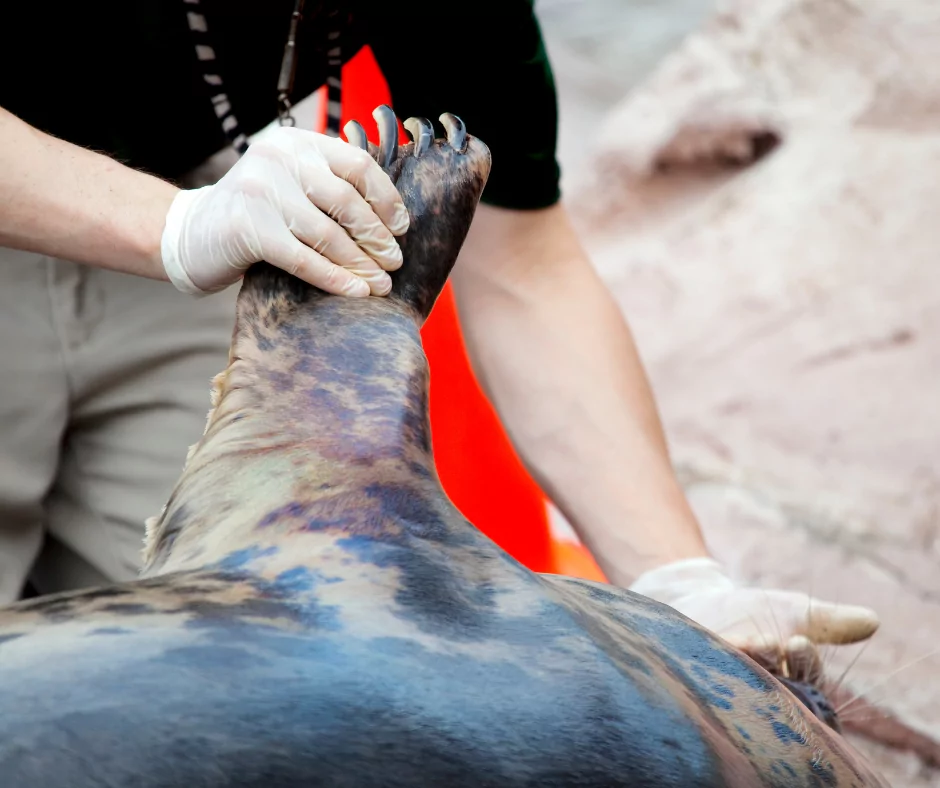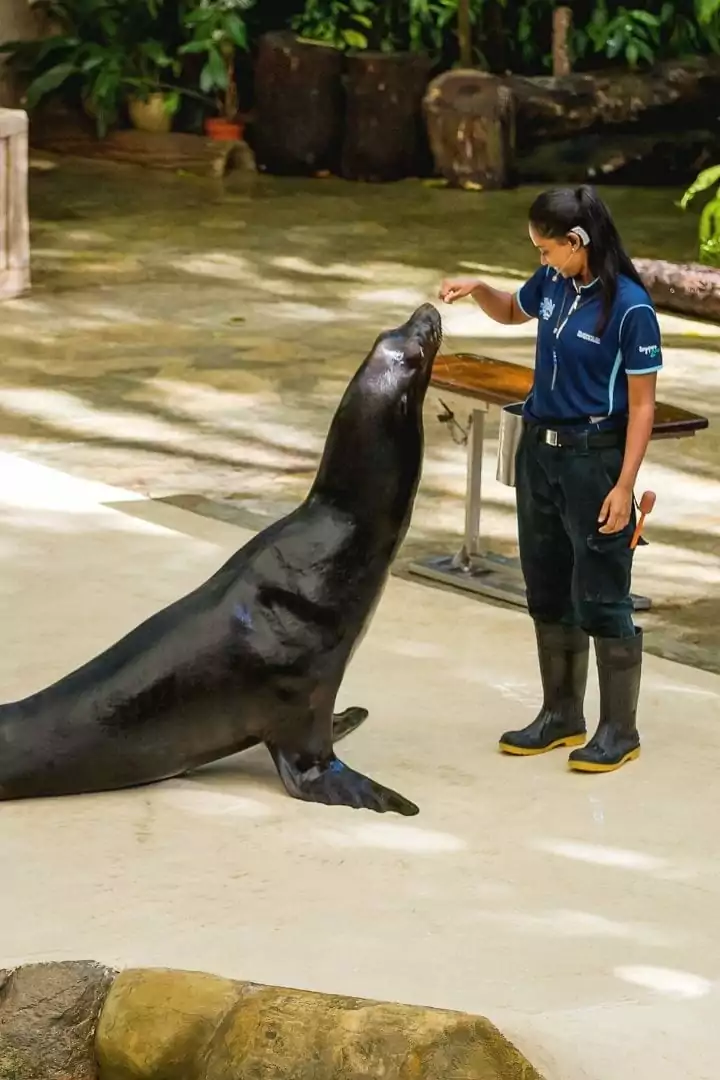What is an Aquatic Veterinarian?
Aquatic Veterinarians are DVMs that specialize in the healthcare and management of marine animals and invertebrates. Aquatic Veterinarians are qualified to treat a wide variety of underwater life, including fish, sea turtles, marine animals, and other wildlife.
How do you Become an Aquatic Veterinarian?
Your journey to becoming an aquatic veterinarian will involve extensive training but must stem from an overall passion for the animal. Most aquatic vets grow up with a passion for sea life, and a strong will to succeed in this competitive field. Once you have these important tools, you can follow the path to DVM.

Education Requirements
To become an aquatic veterinarian, you must first complete your doctorate of veterinary medicine. This will require you to complete prerequisite courses, four years of veterinary courses, and possible additional education after graduating depending on your specialty.

If you are interested in taking the path toward aquatic medicine, there are some colleges that are more recommended than others, so make sure to do your research on what each school has to offer. Some colleges specialize in this training, and gear curriculum around aquatic medicine.
Internship
An internship gives aspiring veterinarians a chance to gain experience and education in a clinical setting. This is considered the first step in your clinical setting training and helps to prepare you for your future career. You will most often start an internship after receiving your DVM degree, but it is sometimes offered in conjunction with working toward your DVM.
Residency

After completing an internship in a clinical setting, you then move on to your residency training. This is more specific training, more than often in the specialty of your choice. Your residency can be completed in the step to move on to another setting, or a possible “interview” for a permanent spot at your residency site.
Licensing & Certifications
To be an aquatic veterinarian, you must earn your doctorate in veterinary medicine. Once you have completed your degree and your additional career training, you must follow up with continuing education each year to keep your license to practice valid. Each amount of continuing education needed will vary depending on your specialty.
*It is important to note that aside from veterinary training, it is recommended to complete scuba training when wanting to pursue a career with underwater creatures. You may have to examine animals in their natural habitat, so a strong swimming ability is pertinent.

Where can you Work as an Aquatic Veterinarian?
Aquatic veterinarians can work in private practices, but often work in zoos, aquariums, museums, marine parks, and agriculture facilities.

Since aquatic vets can work with animals in various types of facilities and enclosures, it is important to keep in mind the variety of conditions you could work in. This refers to the weather, location, and possibly rigorous conditions.
While the facilities in which you may work can vary, daily tasks may include:
- Performing physical exams
- Taking samples for diagnostic testing
- Giving routine vaccinations
- Evaluating behavior
- Treating wounds
- Performing surgical procedures
- Handling emergency medical situations
- Supervising medical staff
How Much Does an Aquatic Veterinarian Earn?
The median annual salary for an Aquatic Veterinarian is anywhere from $90,000-$100,000. While some experts in this field are making up to $200,000, it’s important to be aware of the large variety of salary depending on your career settings.
Summary
If you have a love for sea life and underwater creatures, a career as an aquatic vet can be incredibly exciting and rewarding. If you put in the work necessary to complete your degree and training, some incredible opportunities await you!
When you read this article, you will learn about the top aquatic veterinary programs in the US you can attend in your pursuit of this career.
